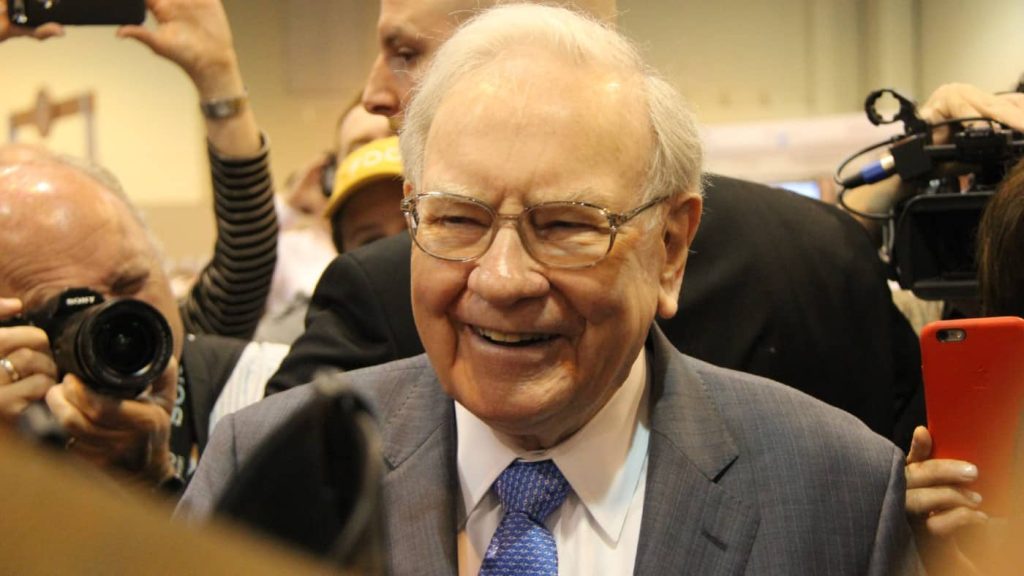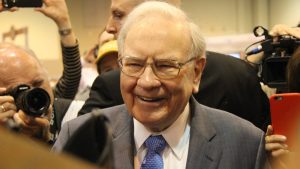What UK investors can learn from Warren Buffett’s recent trades


Warren Buffett’s every move is analysed under a microscope — and with good reason. As the driving force behind Berkshire Hathaway, he’s created one of the most successful investment records in history.
But what does his latest trading activity reveal? And are there lessons here for UK investors?
While Buffett doesn’t typically invest in UK-listed companies, many shares on the FTSE 100 have similar characteristics to those in his portfolio — global reach, pricing power, and consistent cash generation.
In particular, two recent Berkshire Holdings — Johnson & Johnson and Constellation Brands — remind me of UK equivalents AstraZeneca and Unilever (LSE: ULVR).
Here’s why they may be worth considering for UK investors.
A defensive pharma pick
Buffett trimmed his position in healthcare giant J&J a few years ago but the logic behind owning large-cap pharma remains. Companies like these benefit from wide moats, high barriers to entry, and products people rely on regardless of the economic cycle.
In that sense, AstraZeneca fits the bill. The firm has built a diverse drug portfolio and is investing in oncology, immunology, and rare diseases treatments. It also boasts impressive financials: revenue grew 12% in the second quarter of 2025 and earnings per share climbed 27%.
Although the dividend yield is a modest 2.2%, the payout ratio is well-covered by earnings and has room to grow. The price-to-earnings (P/E) ratio of 19.7 may look high at first glance, but is arguably justified by the company’s strong pipeline of long-term growth potential.
One risk? Drug development failures and regulatory hurdles can hit revenue and sentiment hard — but for investors seeking Buffett-style defensiveness, AstraZeneca is one to consider.
Always in demand
Buffett has been increasing Berkshire’s position in Constellation Brands recently. His love for well-known branded consumer products stems from their pricing power, consistency, and brand loyalty — traits also found in UK consumer goods giant Unilever.
With household names like Dove, Hellmann’s, and Persil in its portfolio, Unilever enjoys broad global exposure. In Q2 2025, turnover rose 3.3% year on year, driven by a return to volume growth. Despite inflationary pressure, it maintained operating margins above 16% — impressive for a company in this space.
The 3.4 % dividend yield, backed by a payout ratio of around 75%, offers solid passive income potential. And while the share price has struggled in recent years, a forward P/E ratio of 17 suggests the worst may already be priced in.
The current competitive landscape is challenging, though, and poses risks to Unilever’s bottom line. Changing consumer tastes and competition from private labels could continue to weigh on profits. Over an extended period, this could threaten a dividend cut if debt piles up.
Still, when looking at the bigger picture, I believe the scale and brand power of the company are enough to keep it resilient.
Sustainable quality
Buffett’s investment principles — buy quality, hold long, ignore the noise – continue to resonate.
While Berkshire Hathaway may not be snapping up FTSE 100 stocks, businesses like AstraZeneca and Unilever share many of the same strengths as his US holdings.
For patient UK investors, following his philosophy might just pay off.
The post What UK investors can learn from Warren Buffett’s recent trades appeared first on The Motley Fool UK.
More reading
- Worried about a market crash in 2025? These could be among the best stocks to consider buying
- Here’s why Unilever could be a dividend share to consider right now
- What’s going on with the Unilever share price?
- Consider these 3 FTSE 100 and FTSE 250 shares for long-term rewards!
- What sort of return could someone get by investing £20,000 in UK dividend shares?
Mark Hartley has positions in AstraZeneca Plc and Unilever. The Motley Fool UK has recommended AstraZeneca Plc, Constellation Brands, and Unilever. Views expressed on the companies mentioned in this article are those of the writer and therefore may differ from the official recommendations we make in our subscription services such as Share Advisor, Hidden Winners and Pro. Here at The Motley Fool we believe that considering a diverse range of insights makes us better investors.





